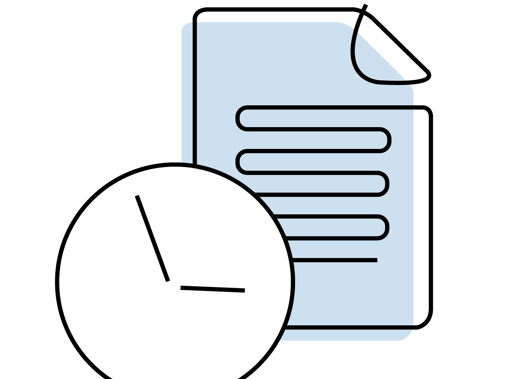Why exception report
Are you staying late?
Have you been missing your breaks?
Are you unable to take teaching opportunities?
You can change things for the better by exception reporting. Record any work that varies from your agreed rota, and you could get time off in lieu or pay and possibly bring about lasting improvements, to the benefit of yourself and your colleagues, through rota change and other enhancements.
Find out more about changes brought about through exception by watching these short films:
- Why exception report with Anu Trehan
- Why exception report with Eva Wooding
- Why exception report with Pardeep Gill
How to submit an exception report
Exception reports must be sent electronically.
There may be variation between employers in the exception reporting tools used, such as email, mobile or desktop apps, or other technology. However, employers must have an electronic system in place – paper forms are not a permitted mechanism.
If the exception reporting software your employer has in place is faulty or not accessible at the time, you should still submit an exception report through other means, for example by email as a temporary solution until software problems are resolved.
Training on the local exception reporting technology must be provided by your employer and should take place during working hours.
Watch tutorial videos which show how to submit an exception report on Allocate, DRS4, and HealthRota.
When to submit an exception report
You can submit a report for any variation from the planned working hours or training opportunities in your work schedule.
You should submit the exception report as soon as possible after the exception takes place, this should be done within a maximum of 14 days (or 7 days when making a claim for payment).
When you are required to work additional hours, ideally you would seek authorisation for this beforehand from your manager, but this isn’t always possible. If that is the case, submit an exception report and the extra hours can be authorised retrospectively. As outlined above, the claim should be submitted within 14 or 7 days of the event, and your report must receive a response within 7 days of submission.
In circumstances where the additional hours you were required to work result in a breach of rest requirements this should be highlighted in the exception report and marked as urgent, so that all practicable steps can be taken to ensure that time off in lieu can be authorised within the 24 hours after the shift.
What you should exception report
Exception reporting will allow you to quickly and easily flag up if your actual work has varied from your agreed work schedule (the plan for your work and training including the rota template).
You are contractually entitled to exception report for all of the below activities:
- all scheduled NHS work under this contract (e.g. any patient facing and non-patient facing activities that is required as part of the doctor’s employment) and
- any activities required for successful completion of your ARCP, including any educational or development activities explicitly set out in your personalised work schedule
- any activities that are agreed between you and your employer, (e.g. quality improvement, JDF attendance, patient safety tasks, etc.)
- any professional activities that you are required to fulfil by your employer (e.g. e-portfolio, induction, e-learning, Quality Improvement and Quality Assurance projects, audits, mandatory training / courses)
You should exception report issues as they arise, which can include:
- differences in the total hours worked from what was set out in the work schedule, including the prospective estimate of hours actually worked while non-resident on-call
- being unable to take your contractual rest breaks:
- at least one 30-minute paid break for a shift rostered to last more than five hours
- a second 30-minute paid break for a shift rostered to last more than nine hours
- and a third 30-minute break when working a night shift of 12 hours or longer)
- educational or training opportunities missed
- levels of support available during service commitments
This will facilitate timely adjustments to be made to your working patterns where needed, as well as getting sign off for either time off in lieu or additional pay if you've been required to work beyond your scheduled hours.
Exception reporting is every trainee’s right and responsibility. There are no restrictions on what should be reported or indeed how many reports can be submitted. Furthermore, there is no pre-authorisation or sign-off process required before an exception report can be submitted.
Exception reporting is the mechanism to ensure that training can be safeguarded, workloads kept manageable and safeguards maintained both for your health and the safety of the patients you look after.

For almost 200 years, we have been supporting doctors from tuition to physician and beyond. Learn more about being a BMA member today.
As of 18 September, all references to junior doctors in BMA communications have been changed to ‘resident doctors’.
Making up nearly 25% of all doctors in the UK, this cohort will now have a title that better reflects their huge range of skills and responsibilities.
Find out more about why junior doctors are now known as 'resident doctors'.

